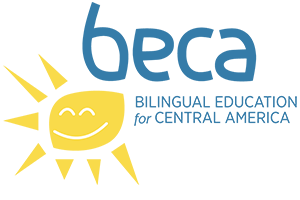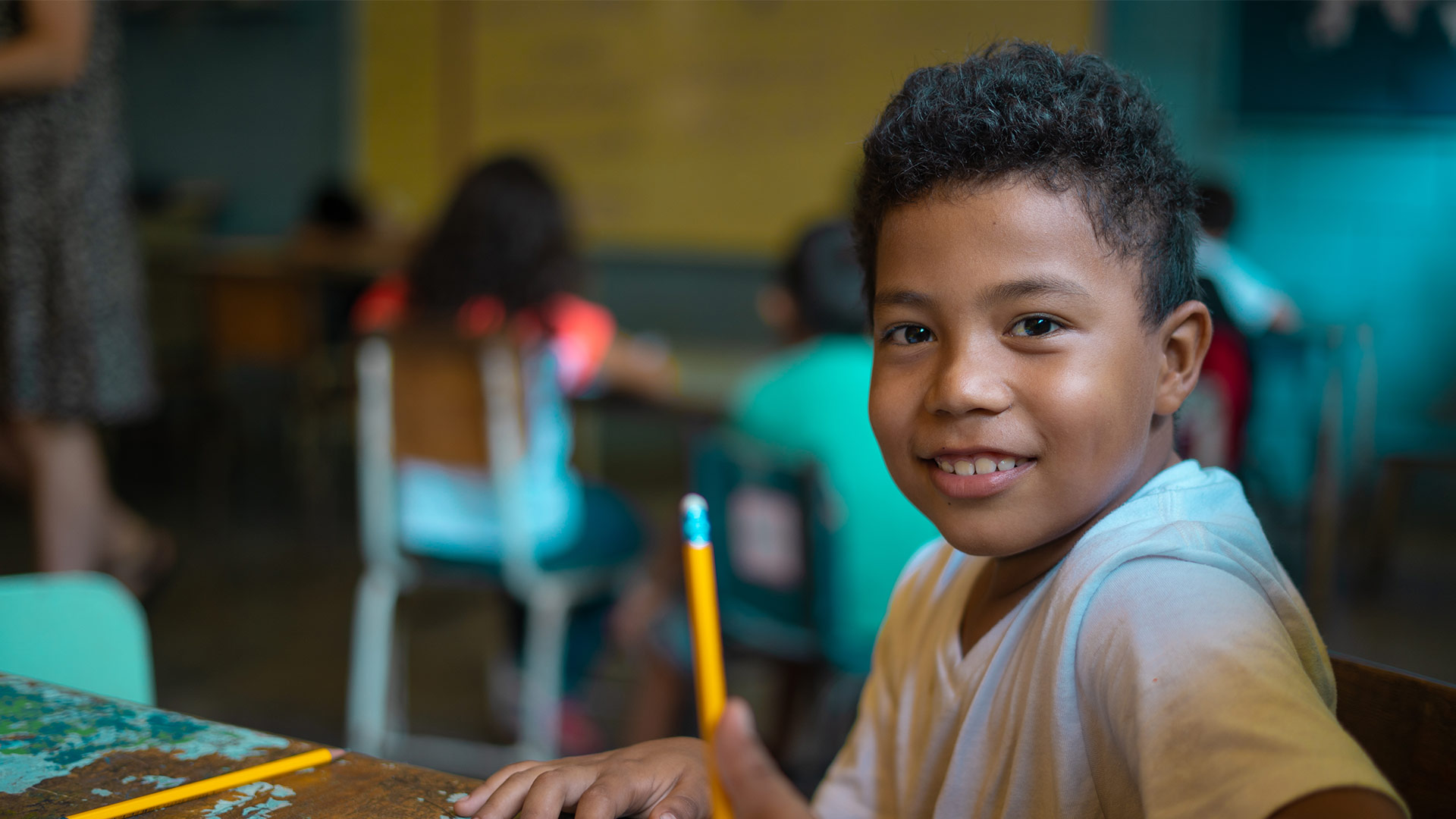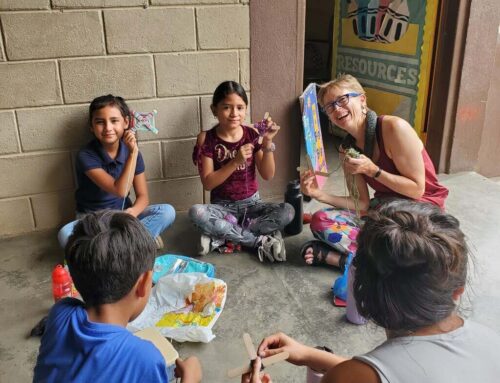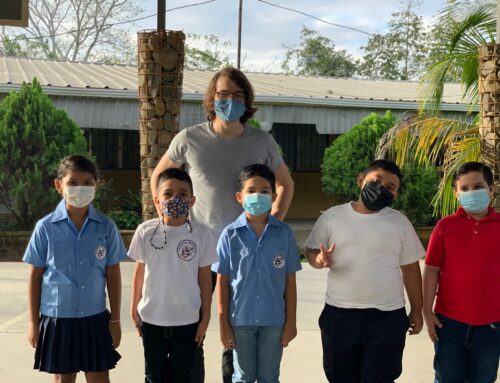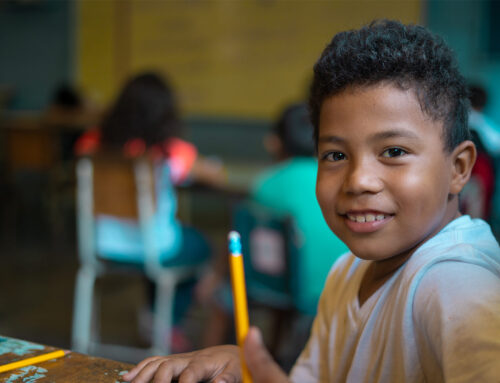How did you first get involved with BECA?
When I graduated from undergrad I knew that I wanted to gain experience living and working abroad but I didn’t know where I wanted to go or what I wanted to do. Since that was too wide of a google search, I narrowed my search down to Honduras since I had traveled there previously as a short-term volunteer with Global Brigades. I logged into Idealist.org, found BECA, got an interview, and two weeks later I was moving out of my college apartment down to Honduras!
How has BECA changed since you were a volunteer?
Honestly, a lot has changed in the 7 years since I was a BECA volunteer. We’ve expanded to two additional schools – Santa Monica and Amigos de Jesus. That growth has resulted in new positions – Program Admins, Program Manager, Teacher and Student Support Coordinator, and my position! – as well as larger numbers of volunteers, including bilingual Hondurans some of whom were students at San Jeronimo when I taught there!
Share your favorite memory from your time as a volunteer.
A couple times of year, we have a school wide celebration like for Cena Navideña (Christmas Dinner). All the teachers were told their classes had to prepare a song or performance. Well, I’m not exactly a singer so I figured I shouldn’t try to teach any children how to sing like I do. Instead I taught them a mash up of dances like the Electric Slide, Cotton-eyed Joe, and the Cupid Shuffle. Later in the year we did our own rendition of Thriller. It was a ton a fun! Two years later when visiting Cofradía I was speaking with Miss Jillian, my former students’ 5th grade teacher, and as we were talking she goes, “Oh, you’re the dancing teacher!” And my heart melted. What an honor to be known as the dancing teacher!
What’s your favorite place to visit in Honduras? Favorite Honduran food?
Easy – baleadas. There are so many different kinds to try since every person who sells baleadas, makes them in their own unique way. You’ve got breakfast baleadas, snack time baleadas, and dinner baleadas. You can get a sencilla (the basic: flour tortilla, refried beans, cheese, and crema); you can add eggs and avocado (my personal favorite); or you can add a meat like chorizo (my other personal favorite). On my last trip to Cofradía in September my former student, Jeimy, introduced me to my new favorite baleada spot right next to the canchitas (soccer field). You can count on me being there about every other night during my next trip!
My favorite place to visit would have to be Gracias, Lempira. It’s so beautiful and cool (temperature-wise) up in the mountains. I got the chance to hike up to the top of Celaque (Honduras’ highest peak) with my fellow volunteer, Miss Stephanie, and afterwards we rested our tired muscles in the aguas termales (hot springs). I highly recommend it.
How did BECA shape your personal and professional life after you volunteered?
While it’s horribly cliché to say this, my year volunteering with BECA changed my life. I came to BECA as a volunteer because I wanted to do some good and “make the world a better place”. Little did I know that my 25 eight and nine year old students were going to make me a better person. To this day I pray that my 3rd graders learned at least half as much from me as I learned from them.
One of the personal developments that surprised me the most was developing a true appreciation of my hometown. It’s ironic that I had to leave home to truly appreciate it but that’s exactly what happened. It wasn’t until I returned home for a visit during winter break that I saw how unique and wonderful my hometown is and how much I had taken it for granted as a youth.
What’s a misconception you wish more people understood about Honduras? What do people say when you tell them you work in Honduras?
Two things immediately come to mind: one is violence and the other is underdevelopment. Most people only know Honduras from what’s picked up in headline news – violence, corruption, and gangs. While all of those things exist in Honduras, it is so much more than that. And the only way to know that is to go there. Meet some Hondurans, learn a bit about their culture and you’ll quickly realize the sheer and utter beautiful of the country and its people.
The other question usually comes in the form of “Why are things so bad in Honduras? Why isn’t it like Costa Rica?” Fun fact: I fielded that question once in about 90 seconds during the intermission of a play I was seeing. Unfortunately, the answer is quite complex, deeply rooted in geopolitical history, and prominently features the implications of U.S. foreign policy. You can look at this question from many different angles – from international drug trafficking or the rampant increase in deportations under Reagan to the impact of Hurricane Mitch in 1998 or the horrible inequality that the banana industry institutionalized. In truth though, all of these angles shed light on the reasons why Honduras is the way it is. And this is precisely why we’re working where we are – to provide an alternative way forward.
What attracted you to the Director of Program Development position?
I very much wanted to get back into grassroots development. I did a stint with a USAID (United States Agency for International Development) implementing partner and while they do excellent work, I was personally too far removed from the people I got into this field to serve. The two things that attracted me to this position were BECA’s deep commitment to our communities and our partners and bringing bilingual Hondurans into our volunteer team. When I heard that Mr. Andres, a former SJBS student, was back in the classroom as a teacher while he’s working to get his degree in Education, I was moved. I mean talk about sustainable development! As far as BECA’s commitment to our communities and partners – I’ve never been with an organization that takes that commitment more seriously. We don’t have a single conversation without involving our partners from the very beginning. Any time a staff member or volunteer has a new idea or initiative, the very first question in response will be, “well, what do our partners think about that? Have you talked to parents about it? What do they think? What do the students say?”
What is your favorite part of your job as the DPD?
I feel that this job gives me the best of both worlds – I get to be based out of D.C. where I can be close to family and friends while traveling frequently down to our schools in Honduras. And the work on which I’m focused is exactly what I’ve always dreamed of doing – expanding our programming to further support our students and graduates and providing cultural exchange opportunities for volunteers to spend a life-changing year in Honduras as I did.
What does a typical day for you look like?
Well, I like to wake up slowly, meditating and drinking coffee before I turn on my computer. I start off the day checking emails and usually have a few calls or videoconferences throughout the day especially with Sean, our Executive Director, and Johanna, the In-Country Director. I work from home but some days I’m over at Sean’s house collaborating on our strategic plan or recruitment strategy, and other days I’m posted up at a coffee shop or at my desk working on an upcoming project like Libros y Familia (an annual literacy event called Books and Family) or updating our website. We also do a lot of work with our alumni so I’m often on calls in the evenings with alumni who help us out by being interviewers or attending recruitment fairs. Since the days can be quite long depending on the week, I try to take breaks throughout the day by going for a walk or every once in a while attending a lunchtime yoga class. More often than not it doesn’t even feel like work though. I get to do something that I’m deeply passionate about that directly benefits communities I know and love. For me, it doesn’t get any better than that.
What would you say to someone who is considering volunteering with BECA but not really sure?
I would say reach out and talk to us! I can talk to them about my experience and answer any questions they might have or connect them with another alum. We’re happy to provide as much information as possible, but the only way to truly understand a BECA school or life in Cofradía or at Amigos de Jesus is to experience it firsthand. So I invite anyone who is considering volunteering with BECA for a year, especially if you are currently an undergrad, to consider our short-term volunteer opportunities as a Summer Camp Counselor or participating in a weeklong Social Tourism Trip.
What’s one goal you have for BECA as the organization continues to grow?
One thing that stands out for me as a need that’s only going to increase as Santa Monica and Amigos de Jesus start graduating students is how we support our graduates after 9th grade. There are certain fabulous initiatives that have happened in the past simply because we had a volunteer who went above and beyond and implemented something like homework club for high schoolers for example. I’m really excited about looking at those kinds of initiatives and identifying – along with our partners, parents, and students – which ones are the most beneficial. That way we can put time, energy, and resources into turning those past one-off initiatives into ongoing programming that will benefit every single graduating class from each of our three schools.
What does BECA mean to you?
Wow, this is a doozy of a question! BECA means so much to me and the meaning has really evolved over time. When I take a step back and really think about it, BECA means opportunity. We’re hope-dealers and opportunity providers – both for our volunteers and for our students and their families. We are intentionally in the communities where we work to provide a positive alternative for our students and their families so that they can become change makers in their own communities. With our volunteer-driven bilingual school model, we extend those opportunities to both international and Honduran volunteers as well. Our volunteers sacrifice a lot to come to Honduras and work with us for a year (or two!) but all in all the reward far outweighs the challenges endured.
